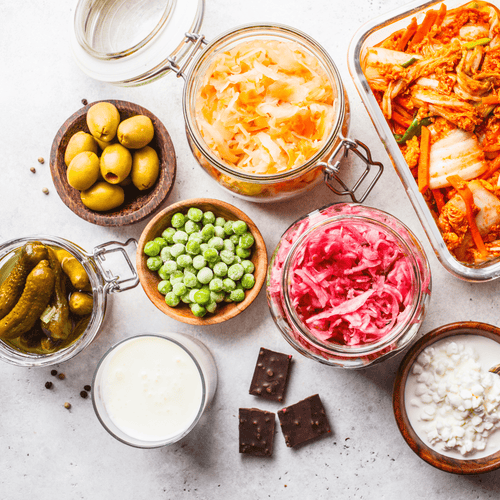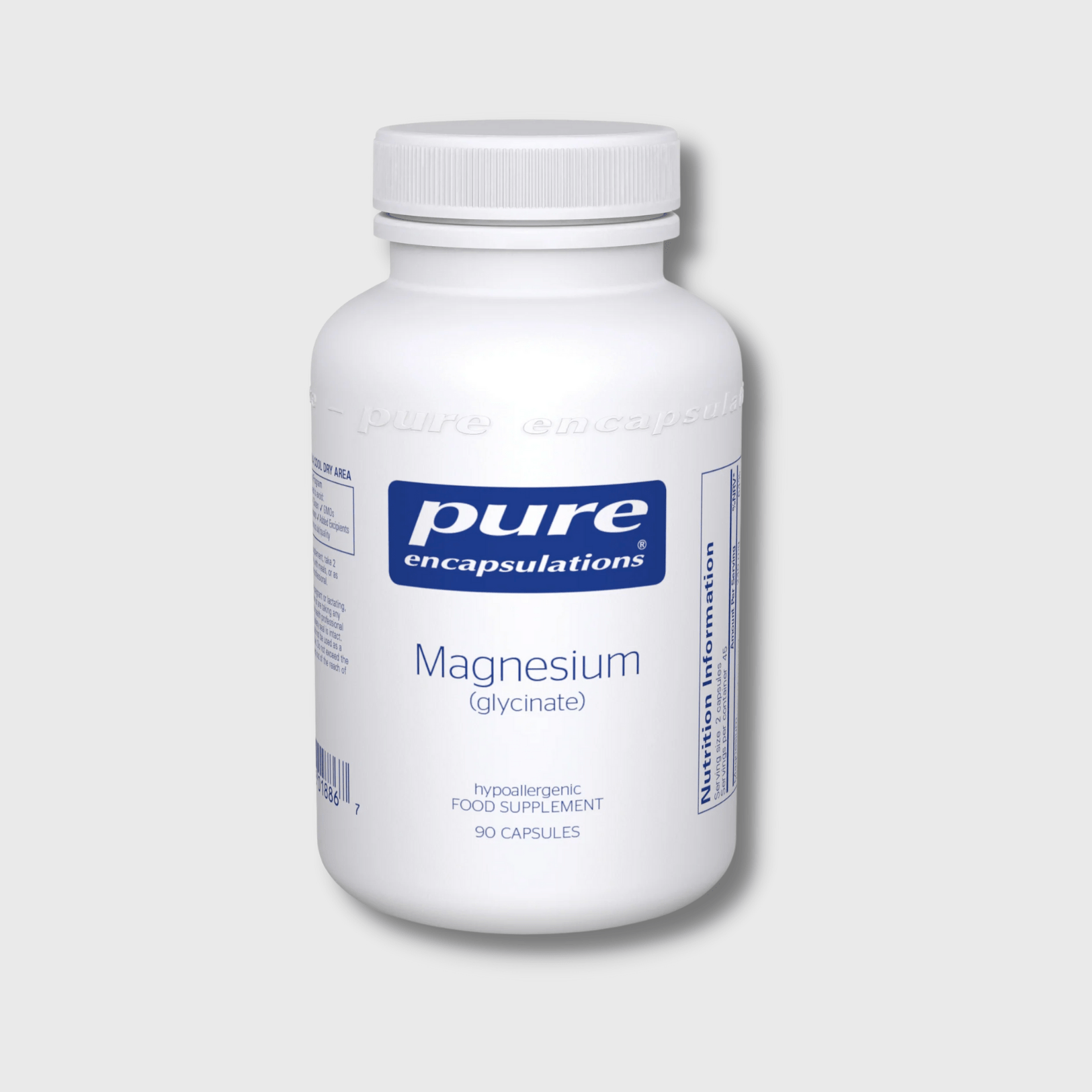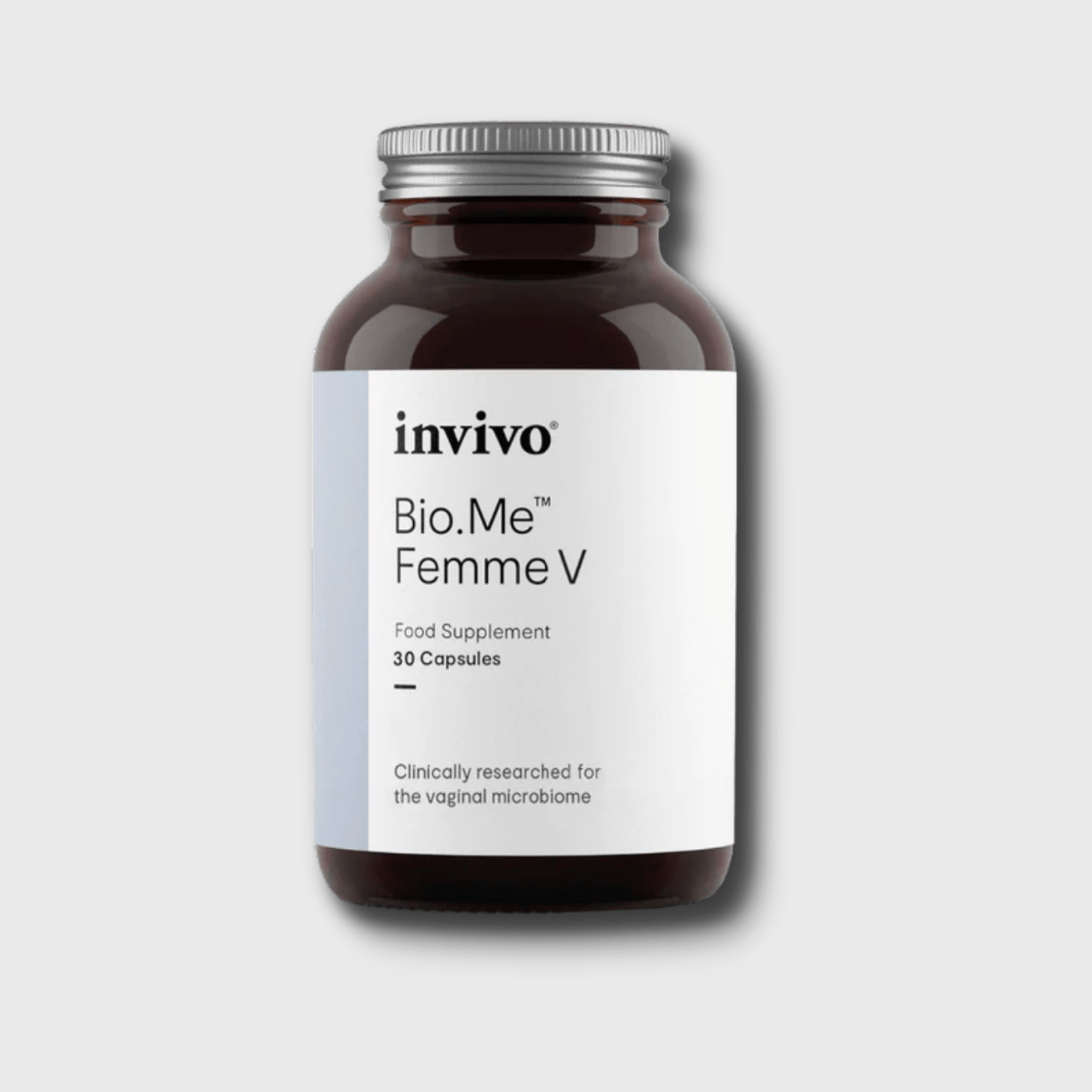
Probiotics vs Prebiotics: Understanding their key differences for gut health
Probiotics, prebiotics and gut health
Gut health is bang on trend – we have never been more fascinated with our gut. We see ‘gut-friendly’ foods appearing on our supermarket shelves, and looking after our gut microbiome is the goal of many. The human gut is home to trillions of bacteria, outnumbering our human cells, and these bacteria play a crucial role in maintaining our overall health. Known as the gut microbiome, this vast community of bacteria aid digestion and play crucial roles in immunity, mental health, and cardiovascular function. With our fascination with discovering more about our gut health, understanding the difference between probiotics and prebiotics and their specific roles essential for maintaining a balanced microbiome is vital.
What is the gut microbiome?
The gut microbiome has evolved over millions of years, and you will see different patterns in different areas of the world and environments. It consists of a diverse range of microorganisms that coexist with us in a unique and fascinating symbiotic relationship. It includes more than 39 trillion bacteria, with hundreds of different species, each contributing to various bodily functions. In fact, it is estimated that we hold around 3lb of bacteria in our gut alone, with more found in our mucus membranes, such as the lungs, sinus, and cervical canal. This complex ecosystem contains 150 times more genes than the human genome, highlighting its extensive influence on health. The gut microbiome is highly diverse, and its composition can be influenced by our overall health, diet, lifestyle, pH, medication, mood, and environment, making it unique. It is a fascinating subject with so much more to discover.
We inherit our gut microbiome from our mother as we pass through the birth canal and via breastfeeding, but if the mother’s bacteria are poor or unhealthy, unfortunately, this is what we inherit. Babies born by caesarean section, not breastfed or those who have been exposed to antibiotics in the early months are shown to be more likely to have digestive or immune issues (eczema, asthma, food intolerances, ear infections, and throat infections are typical). As we are weaned and move into our typical Western diet, our guts can struggle. We then move through life with an onslaught of potential bacterial disrupters such as environment, diet, medication and more.
We can have friendly or unfriendly bacteria, also known as good/healthy or bad/unhealthy bacteria. Good bacteria thrive in a slightly acidic environment, and harmful bacteria thrive in a more alkaline environment. Bacteria will also create the right environment for them to thrive, so a healthy gut will stay healthy as it creates more good bacteria. However, the same can be said for our harmful bacteria, meaning they can be very stubborn to remove once established.
Once we realise the importance of a good gut microbiome, we can begin to understand why maintaining good gut health is critical for preventing issues such as immunity, inflammation, infections and metabolic disorders.
What are the functions of the gut microbiome?
- Digestive Support: Good gut bacteria help break down complex carbohydrates, proteins, and fats, aiding in nutrient absorption and producing vital substances like short-chain fatty acids (SCFAs), which are crucial for colon health.
- Immune Modulation: The microbiome plays a pivotal role in training and regulating the immune system, enhancing the production of immune cells, and protecting against harmful pathogens.
- Mental Well-being: The gut-brain axis connects the gut and brain, with gut bacteria influencing mood, stress levels, and cognitive function through the production of neurotransmitters like serotonin and GABA
What are probiotics?
Probiotics, or beneficial bacteria, are essential for various bodily functions. These bacteria, found mainly in the gut, play a crucial role in digestion, immunity, hormones, energy metabolism, cognition, cardiovascular function, and blood sugar regulation. They also produce essential vitamins such as B vitamins and vitamin K and even influence mood and mental well-being. They are the big players for our overall health, not just in our gut but our entire body, including the skin.
Probiotics are live microorganisms, typically bacteria or yeast that provide health benefits when consumed in adequate amounts. They are often referred to as “good” or “friendly” bacteria because they help maintain a healthy balance in your gut microbiota, the community of microorganisms that reside in your digestive tract. Probiotics can help maintain or restore a healthy balance of gut bacteria. They may not permanently colonise the gut but still exert beneficial effects by producing substances like lactic acid and antimicrobial compounds. Their influence can be temporary, meaning continued use is often necessary to sustain benefits, especially given our 21st-century lifestyle, diet, water systems, and medications. Common strains include Lactobacillus and Bifidobacterium, known as the gardeners of the probiotics – helping to produce or nurture many of the other strains whilst assisting to weed out the ‘bad bacteria’. Probiotics can help protect the gut against the adhesion of pathogenic bacteria, help with the production of secretory IgA, promote short-chain fatty acids and stimulate gut associate lymphoid tissue (GALT). Probiotics have been shown to help with various conditions, from diarrhoea to irritable bowel syndrome (IBS) and our mental health due to the gut-brain axis interaction.
What are key probiotics?
- Fermented Foods: Include foods like yogurt, kefir, sauerkraut, kimchi, miso, and tempeh in your daily diet.
- Supplements: These can be an effective alternative to a diet deficient in probiotics or used to restore poor gut health. Choose products with a variety of strains and a high CFU (colony-forming units) count for maximum benefit.
What are prebiotics?
Prebiotics are non-digestible food components, typically fibres, that feed the beneficial bacteria in your gut – so think of them as the perfect food for your probiotics. Unlike probiotics, prebiotics are not live organisms but are critical for nourishing good bacteria and promoting their growth. Common prebiotics include inulin, fructooligosaccharides (FOS), and galactooligosaccharides (GOS), which are found in foods like garlic, onions, bananas, and some whole grains.
What are the benefits of prebiotics?
- Support for Gut Bacteria: Prebiotics selectively stimulate the growth and activity of beneficial bacteria like Bifidobacterium and Lactobacillus, helping to maintain a healthy gut microbiota.
- Improved Digestive Health: By increasing the production of SCFAs (short-chain fatty acids), prebiotics help strengthen the gut barrier, reduce inflammation, and support overall digestive health
- Enhanced Mineral Absorption: Prebiotics can improve the absorption of minerals such as calcium and magnesium, supporting bone health and preventing deficiencies.
What are prebiotic foods?
- High-Fibre Foods: Garlic, onions, leeks, asparagus, bananas, and chicory root. These foods are naturally rich in prebiotic fibres that nourish your gut bacteria.
- Prebiotic Supplements: If your diet lacks sufficient prebiotic fibres, consider supplements containing inulin, FOS, or GOS to support your gut health.
Probiotics vs prebiotics: understanding the difference
Probiotics and prebiotics have a symbiotic relationship. Probiotics are live bacteria that add to the population of healthy microbes in our gut. Prebiotics, on the other hand, are specialised plant fibres that act as a food source for these bacteria. Consuming both can be particularly effective in restoring and maintaining a healthy gut microbiome.
|
|
Probiotics |
Prebiotics |
|
Benefits |
• Restores gut flora • Improve digestion • Supports immunity |
• Enhances growth of beneficial bacterial • Improves gut integrity • Maintains long-term gut health |
|
Foods |
• Yoghurt (cultured) • Kefir • Sauerkraut • Kimchi • Good quality supplements |
• Onions • Asparagus • Chicory Root • Supplements containing Inulin, Fructooligosaccharides (FOS), and galactooligosaccharides (GOS) |
What are synbiotics?
We are often asked which do you take first, the probiotic or the prebiotic. It is generally recommended to start with prebiotics to prepare your gut environment for probiotics to work more effectively. However, synbiotics are supplements or foods that contain both probiotics and prebiotics. They provide a synergistic effect, where prebiotics nourish the probiotics, helping them thrive and exert their beneficial effects more effectively. This combination can be particularly beneficial for those with digestive issues or for maintaining general gut health.
What are some examples of synbiotics?
- Supplements: Look for products combining multiple probiotic strains with prebiotics like inulin or FOS.
- Foods: Consuming yoghurt or kefir, along with prebiotic-rich foods like bananas and onions, can create a natural symbiotic effect.
Postbiotics: the lesser-known component
Postbiotics are the byproducts of probiotic metabolism, including short-chain fatty acids, peptides, and other metabolites that have health benefits. These compounds can exert anti-inflammatory and antioxidant effects and may contribute to the overall benefits attributed to a healthy gut microbiota.
In summary:
- Probiotics: Live beneficial bacteria that confer health benefits when consumed in adequate amounts.
- Prebiotics: Non-digestible fibres that serve as food for probiotics.
- Synbiotics: Supplements or foods that contain both probiotics and prebiotics.
- Postbiotics: Metabolic byproducts of probiotics that have additional health benefits.
Factors that can disrupt gut health
Maintaining a healthy gut microbiome is essential for overall well-being, but various lifestyle choices and environmental factors can negatively impact this delicate balance. Here are some common and often overlooked elements that can disrupt our gut flora:
- High-Stress Levels: Chronic stress can alter the gut-brain axis, leading to changes in the gut microbiome and increased inflammation, which can contribute to digestive issues and compromised immune function.
- Frequent Use of Antibiotics: While antibiotics are essential for treating bacterial infections, they can also indiscriminately kill beneficial bacteria in the gut, leading to an imbalance and potential overgrowth of harmful bacteria.
- Poor Dietary Choices: Diets high in processed foods, refined sugars, and unhealthy fats can feed pathogenic bacteria and yeast in the gut, contributing to an unhealthy microbiome. A lack of dietary fibre feeds beneficial bacteria and can further exacerbate this imbalance.
- Excessive Use of Antibacterial Products: Overusing antibacterial hand sanitisers, body washes, and household cleaners can reduce exposure to beneficial microbes, potentially weakening the immune system and disrupting skin and gut microbiota.
- Hormonal Interventions: The use of oral contraceptives, hormone replacement therapy (HRT), and certain infertility treatments can disrupt the balance of gut bacteria, potentially leading to gut dysbiosis.
- Exposure to Environmental Toxins: Chlorinated drinking water, pesticides in food, and air pollution can negatively impact gut health by reducing the diversity and abundance of beneficial bacteria.
- Over-Sterilization of Foods: Consuming predominantly pasteurised and sterilised foods eliminates beneficial bacteria naturally found in raw and fermented foods, reducing the diversity of the gut microbiome.
- Inadequate Hydration and Poor Food Hygiene: Drinking chlorinated water and consuming food from poorly rinsed dishes can introduce harmful chemicals and residues that disrupt the gut environment.
- Medication Use: Long-term use of certain medications, such as NSAIDs (nonsteroidal anti-inflammatory drugs) and laxatives, can damage the gut lining, leading to inflammation and a disrupted microbiome.
- Limited Outdoor Activities: Spending most of the time indoors limits exposure to a variety of environmental microbes that are beneficial for gut diversity and overall immune health.
- Excessive Consumption of Food Additives: Artificial sweeteners, preservatives, and colouring agents found in processed foods can negatively impact the gut by altering bacterial populations and promoting inflammation.
- Inadequate Sleep: Poor sleep quality and irregular sleep patterns can disrupt circadian rhythms, which in turn can affect gut motility and the balance of gut bacteria.
- Frequent Use of Antibacterial Products: These products may kill beneficial bacteria throughout the body. For example, an antibacterial mouthwash can destroy the good bacteria in the mouth and digestive tract, potentially leading to an imbalance in the oral and gut microbiomes. Research has shown poor mouth bacteria has been linked to cardiovascular disease and other health issues.
- Excessive Alcohol Consumption: Regular or heavy alcohol intake can disrupt the gut barrier, leading to increased permeability (leaky gut) and a reduction in beneficial bacteria.
- Lack of Physical Activity: Sedentary lifestyles can negatively impact gut health by slowing down digestion and reducing microbial diversity. Regular exercise has been shown to promote a healthier gut microbiome.
- Use of Detergents and Harsh Soaps: Frequent use of harsh soaps and detergents can disturb the natural balance of beneficial bacteria on the skin and in sensitive areas like the vagina, which can indirectly affect gut health.
To support a healthy gut, it is essential to be mindful of these factors and adopt lifestyle practices that nurture and maintain a diverse and balanced microbiome. This includes consuming a varied diet rich in fibre, reducing unnecessary medication and antibacterial product use, staying active, managing stress, and spending more time outdoors.
Key considerations for health and lifestyle
- Diverse Diet: A diet rich in a variety of plant-based foods supports a diverse and healthy microbiome.
- Stress Management: Chronic stress can negatively impact the gut microbiome, leading to imbalances that may contribute to digestive issues and inflammation. Practices like meditation, exercise, and adequate sleep are beneficial for maintaining a healthy gut.
- Avoid Unnecessary Antibiotics: While antibiotics are sometimes necessary, they can disrupt the balance of gut bacteria, reducing the number of beneficial bacteria and allowing pathogenic bacteria to flourish. Use antibiotics only when prescribed and follow up with probiotics to help restore your microbiome.
- Stay Hydrated: Adequate hydration helps move fibre through the digestive system and supports the gut's overall function. Aim to drink at least eight glasses of water daily to maintain a healthy gut environment.
- Regular Physical Activity: Exercise has been shown to positively influence the composition of the gut microbiome. It can increase the abundance of beneficial bacteria and reduce the presence of harmful ones, promoting overall gut health.
Supplementation
Supplements can be a convenient way to ensure you get both prebiotics and probiotics, especially if your diet lacks these components. For maximum benefit, look for supplements that contain multiple strains of probiotics and a variety of prebiotics. Quality is key, as a probiotic has to achieve many things in order to be beneficial.
- Acid Resistance: Probiotic bacteria must withstand stomach acidity to reach their site of action in the intestines.
- Bile Resistance: The ability to survive bile salts is crucial for probiotics to remain viable in the gut.
- Adherence to Mucosa: Probiotics should be able to adhere to the intestinal and vaginal mucosa to prevent pathogens from attaching and exert their beneficial effects.
- Stimulation of Immunity: Different strains of probiotics support different aspects of the immune system. For example, some stimulate the production of secretory IgA, a critical antibody in the gut, so it is crucial to understand what you are supporting and take the appropriate supplement.
When can adding fibre, prebiotics, and probiotics not work?
It is very tempting to increase fibre, prebiotics, probiotics, and fermented foods when you have ongoing gut issues; however, this approach can worsen some gut conditions. Some patients can react to foods with high fibre or foods high in fodmaps (fermentable oligosaccharides, disaccharides, monosaccharides, and polyols), so a diet rich in the prebiotics listed in this article may cause them more digestive issues, especially bloating, diarrhoea or constipation. Nutritionists and functional medicine doctors specialise in identifying potential gut issues using comprehensive stool testing and a breath test for something like SIBO (small intestinal bacterial overgrowth). This can highlight good bacteria, but it can also identify pathogenic bacteria, Dysbiotic bacteria, issues with digestion, mucosal lining, secretory IgA, parasites, short-chain fatty acids, and much more. They can then put together a plan to restore the gut health. This is often referred to as a 5R approach. The 5R framework is a step-by-step method designed to address and manage complex gut issues comprehensively and can take 3-4 months to achieve using this systematic approach
1. Remove: Eliminate the Causes of Imbalance
The first step in the 5R process is removing factors contributing to gut dysbiosis and inflammation. This includes:
- Pathogenic Microorganisms: Use specific herbs, supplements, or medications to eliminate harmful bacteria, yeast, or parasites causing infections like SIBO or Candida overgrowth.
- Trigger Foods: Identify and remove foods that may trigger symptoms or contribute to inflammation, such as gluten, dairy, refined sugars, and processed foods.
- Environmental Toxins: Avoid exposure to pesticides, heavy metals, and other environmental toxins that can disrupt the gut microbiome.
- Stress Factors: Reduce stress through relaxation techniques, exercise, and adequate sleep, as chronic stress can exacerbate gut issues.
2. Replace: Support Digestive Function
After removing harmful elements, supporting the digestive system with substances that aid digestion and absorption is crucial. This phase includes:
- Digestive Enzymes Support: Support digestive enzymes to help break down proteins, fats, and carbohydrates more effectively.
- Stomach Acid Support: Low stomach acid is common in conditions like SIBO and can contribute to inadequate digestion and bacterial overgrowth.
- Bile Salts: If necessary, support bile production, especially if the gallbladder has been removed or if fat malabsorption occurs.
3. Reinoculate: Rebuild Beneficial Bacteria
Once the gut has been cleared of harmful pathogens, the next step is to reintroduce and support beneficial bacteria to restore a healthy microbiome. This must be done cautiously for conditions like SIBO and Candida.
- Selective Probiotics: Use specific probiotic strains that are less likely to aggravate conditions like SIBO or other overgrowth issues.
- Prebiotics: Introduce prebiotic fibres slowly and selectively, starting with low-FODMAP options to support the growth of beneficial bacteria without feeding harmful ones.
- Fermented Foods: Introduce small amounts of fermented foods like sauerkraut, kefir, or kimchi, if tolerated, to naturally reinoculate the gut with beneficial microbes.
4. Repair: Heal the Gut Lining
Healing the intestinal lining is essential to restore its barrier function and prevent leaky gut, which is common in chronic gut conditions.
5. Rebalance: Maintain Long-Term Gut Health
The final step in the 5R process focuses on maintaining a balanced lifestyle that supports gut health in the long term.
- Dietary Balance: Adopt a balanced diet rich in whole foods, adequate protein, healthy fats, and low glycaemic carbohydrates. Continue to include a variety of fibre-rich foods as tolerated.
- Stress Management: Practice stress-reducing techniques such as meditation, yoga, and deep-breathing exercises to prevent stress-induced gut imbalances.
- Regular Exercise: Engage in regular physical activity to support gut motility and microbial diversity.
- Adequate Sleep: Ensure sufficient and quality sleep to support overall health and gut function.
As you can see, a balanced gut microbiome is crucial for overall health. Understanding the roles of probiotics and prebiotics and incorporating them into your diet and lifestyle can support your digestive health, boost your immune function, and even improve your mental well-being. However, if you are suffering from ongoing gut issues, it is always better to seek advice from a health professional. Whether through diet or supplementation, maintaining a healthy gut microbiome is vital to optimal health.
Ready to take your weight loss to the next level? In Week 16 of our Statera 20-Week Weight Loss Programme, exercise plays a crucial role in weight loss, boosting metabolism and supporting sustainable fat reduction.
Share






